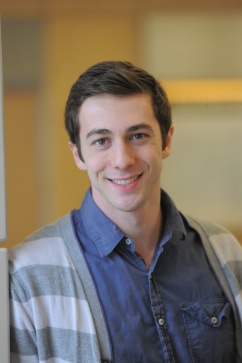Jeremy Ryant: Simulation course equips you with tools that help navigate new and exciting ‘real world’ situations
A hallmark of political science is that it is a theoretical discipline. Political science students study ‘real world’ phenomena, but this is typically done from a normative lens. What makes the a little different, and indeed very valuable, is that it strikes an excellent balance between theory and practice.
As a recent graduate of Political Science, I can attest to the fact that many of us leave political science programs with a plethora of refined and well-formulated ideas in our heads. Very few, however, walk across the stage at graduation with a working knowledge of how political science as an academic discipline translates into ‘real world’ skills. The theoretical approach to political science is inherently sound and indeed essential. That said, having taken the Comparative Foreign Policy Simulation course, I can say that there is value in balancing theory with practice.
The Simulation course lasts for one semester. Throughout the duration of the semester, students team up into small groups – each representing a country and policy area. For example, I was an environmental policy negotiator for China. The Simulation is conducted online, with participants from all over the world. It includes a series of negotiations on various policy proposals.
A course that includes an experiential component stands out from other courses in two ways. First, the Simulation is taught in a collaborative manner. While most lectures (and even some seminars) tend to consist of a one way conversation between the professor and students, this course is almost entirely discussion-based. In my experience, the two instructors that ran the course were there to facilitate the Simulation by providing us with practical tips that helped shape our negotiation strategies. Granted, a great deal of theory was covered. However, the distinction between the Simulation course and other classes was that everything covered in substantive readings and discussions was directly geared towards providing us with the tools to succeed in the Simulation.
Second, in addition to teaching me a number of ‘hard’ skills in the realm of international negotiation, the Simulation course taught me ‘soft’ skills that I have applied far beyond the walls of the Henry Hicks Building. As with other courses, I left the Simulation with a fuller mind and a greater appreciation for a complex subject area. An added bonus was that my ability to function in a team setting also improved. Success in the Simulation did not only require a working knowledge of negotiation theory, but also a steadfast demonstration of patience, thoughtfulness, critical thinking and ingenuity. In short, by combining theory with skills that translate into the ‘real world’, the Simulation improved my ability to function in other demanding settings.
The ‘soft skills’ that I took away from the Simulation course – namely teamwork, patience, strategic thinking, and tolerance – have since served me well in the workplace. Immediately after graduating from Dalhousie, I spent a summer in Ottawa as a . While on the Hill, I found myself constantly translating highly theoretical conceptions of politics into practicable deliverables. As in the Simulation course, success in a fast-paced work environment requires one to work effectively in a team environment, think critically, and find innovative solutions to complex problems.
I am currently pursuing my J.D. at Dalhousie University’s Schulich School of Law. Similar to those who work on Parliament Hill, law students face a constant stream of fast-paced work and complex challenges. Thanks to the Simulation course, I am equipped with tools that help me navigate a number of new and exciting ‘real world’ situations.

